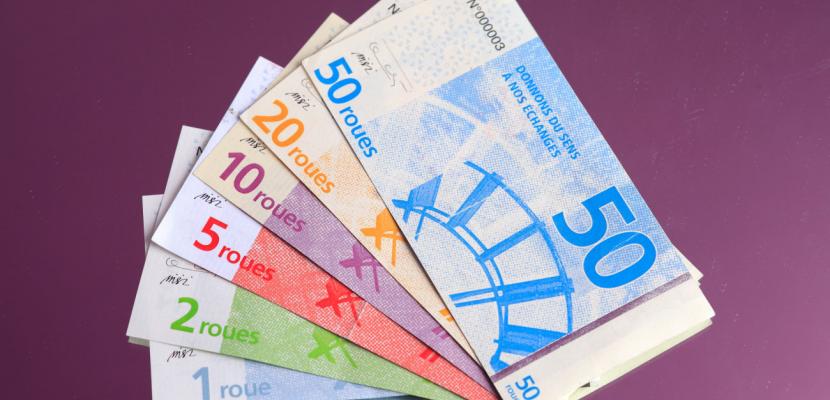
La Roue Marseillaise – a local complementary and citizen currency for circular economy projects

About this good practice
La Roue, in English the Wheel, is a Local Complementary and Citizen currency (MLCC), which enables a decentralized, citizen-oriented, ethical, and ecological management of the currency. It can be used only on the territory of Provence, South of France.
The Wheel was created by citizens, is indexed to the euro, and exchanged at the rate of one for one. It is a signatory to the charter of the MLCC network that compiles all the projects and currencies in circulation in France. The network also organizes meetings twice a year to share experiences.
The citizens who created the Wheel, can choose the suitable professionals to join the Wheel currency. These professionals represent many different trades e.g. craftsmen, shopkeepers, farmers, associations, and local authorities. They are encouraged to improve their own practices (waste sorting, salary practices, using local and organic supplies).
By converting their euros into Wheels, citizens inject their money into the local economy. The euros obtained after their conversion into Wheels are placed in a bank, la Nef, and become loans for projects for the Wheel's partners. The community of Wheel users (citizens) are gathered into associations (one per territory) that decide themselves which projects to finance. By encouraging eco-responsible local production and short transportation and distribution of these products, the Wheel users initiate an efficient movement of relocation of the economy by favouring local businesses.
Expert opinion
Alternative currencies provide an essential opportunity for local and regional economies to regain some degree of control and, consequently, greater resilience. The evolution of the alternative currencies we see today is primarily enabled by new technologies (the internet, smartphones, electronic peer-to-peer systems etc.) that democratize and decentralize the transaction process. Alternative currencies can increase resilience, facilitate local value creation, empower local communities, support local businesses and stimulate sustainable business models. Local currencies, such as the one presented here, can support the growth of local sustainable and circular economies, and could potentially be established in other European regions.
Resources needed
The Marseille team includes one full-time employee and one civil servant. In addition, several volunteers work on a daily and occasional basis. The financial resources come from the members, individuals, and companies.
Evidence of success
The network of Wheel members represents 1,000 professional members throughout the country and 3,000 private individuals. All of the Wheel's associations have put more than a million Wheels into circulation and currently more than 200,000 Wheels are in circulation between the different actors. This means that 200,000 euros are available to be used as loans for Wheel partners for circular projects.
Potential for learning or transfer
The model of the Wheel is well known in France and could be developed in other regions.
The interest of the project lies in the development of a network of professional members and private users of the currency. The more associations will join in, the easier it will be to build partnerships with a diversity of actors in order to make the project known.
The trader who is paid in Wheels will seek to reuse his Wheels, and therefore turn to local suppliers who are members of the network instead of turning to companies outside the territory. The Wheel thus creates a virtuous circle of local economic exchanges, which strengthens the companies, and thus local employment. Thanks to this dynamic, the problems that may threaten the members of the network are quickly identified and all the means are made available to help them by proposing solutions and adequate support.
